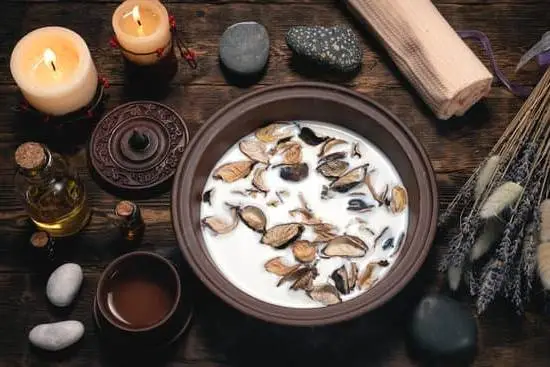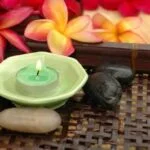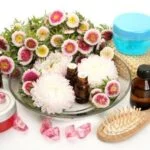How did aromatherapy originate? Aromatherapy, derived from the use of essential oils, has been around for centuries and is still widely popular today. From its ancient origins to its modern revival, the practice of aromatherapy has been a significant aspect of wellness and holistic healing. In this article, we will explore the history, uses, and science behind aromatherapy to understand its enduring legacy and continued impact on health and wellbeing.
Aromatherapy is a holistic healing treatment that uses natural plant extracts to promote health and well-being. It aims to improve physical, mental, and emotional health through the use of essential oils. This therapeutic practice has gained popularity in recent years as people seek natural alternatives to traditional medicine for a variety of ailments.
But how did aromatherapy originate in the first place? To understand this, we must look back at its ancient origins and the role it played in ancient civilizations.
The history of aromatherapy can be traced back to ancient civilizations such as Egypt, China, India, Greece, and Rome, where aromatic plants were used for religious rituals, spiritual purification, medicinal purposes, and even embalming. The use of aromatic oils dates back thousands of years and has been documented in various historical texts. Understanding the ancient origins of aromatherapy provides insight into how it evolved over time and its significance in different cultures.
Ancient Origins
Aromatherapy has been used for thousands of years and has its origins in ancient civilizations. Its practice dates back to the early Egyptians, who used aromatic oils for religious ceremonies, burial rituals, and as part of their daily skincare and health routines.
The Chinese also have a long history of using aromatic plants and herbs for medicinal purposes. They believed that fragrant plants had the power to heal physical and emotional ailments. In India, the practice of Ayurveda incorporated aromatherapy into their traditional medicine system, using essential oils for massage, bathing, and spiritual purification.
Similarly, the Greeks and Romans were known to use aromatic oils for therapeutic purposes as well as for fragrance in bathhouses and public places. The Greek physician Hippocrates recognized the influence of aromas on overall health and prescribed scented baths and essential oil massages for healing.
Ancient civilizations valued aromatherapy not only for its healing properties but also for its ability to enhance spiritual practices, promote overall wellbeing, and even offer protection from infectious diseases. The historical roots of aromatherapy lay in the belief that the natural essence of plants could bring balance to the body, mind, and spirit. Today, we continue to draw upon these ancient traditions as we explore the therapeutic benefits of essential oils in modern aromatherapy practices.
- Egyptian use of aromatic oils in religious ceremonies
- Chinese belief in fragrant plants’ healing powers
- Greek recognition of aromas’ influence on overall health
The Role of Essential Oils
Aromatherapy, also known as essential oil therapy, involves the use of volatile plant materials, known as essential oils, for improving a person’s physical and psychological well-being. These essential oils are typically extracted from various parts of plants and then used in a variety of ways to promote health and healing. Understanding the basics of aromatherapy involves learning about the role of essential oils in this practice.
What Are Essential Oils?
Essential oils are concentrated liquids that contain volatile aroma compounds from plants. These natural oils are generally obtained through distillation or mechanical methods, such as cold pressing. Each essential oil has its own unique chemical composition and aroma, which can have different effects on the body and mind. Some commonly used essential oils include lavender, tea tree, peppermint, and eucalyptus.
How Essential Oils Are Used
In aromatherapy, essential oils can be used in a variety of ways to achieve their therapeutic effects. They can be inhaled directly or through the use of diffusers to disperse the aroma into the air. Essential oils can also be applied topically when diluted with carrier oils for massage or added to bathwater for aromatherapy baths. Additionally, some essential oils can be ingested under the guidance of a qualified healthcare professional.
The Healing Properties of Essential Oils
The healing properties of essential oils are diverse and cover a wide range of physical and psychological complaints. For example, lavender oil is often used for its calming and sedative effects, while eucalyptus oil is utilized for its decongestant properties.
The effects of each essential oil are often attributed to the specific chemical compounds found within them, such as terpenes or aldehydes, which interact with the body at the molecular level to produce therapeutic benefits. Understanding these properties is crucial for effective use in aromatherapy practices today.
Aromatherapy in Traditional Medicine
Aromatherapy has been used for healing in traditional medicine for centuries, with different cultures across the world incorporating the use of essential oils and aromatic plants into their medical practices. The origins of aromatherapy can be traced back to ancient civilizations such as China, India, Egypt, Greece, and Rome, where plant extracts and aromatic compounds were utilized for their therapeutic properties.
In ancient China, aromatic herbs and plant extracts were an integral part of traditional Chinese medicine. The use of essential oils in combination with acupuncture and massage was believed to restore balance and harmony within the body. Similarly, in India, the practice of Ayurveda utilized essential oils derived from plants like sandalwood and ginger to treat various ailments and promote overall wellbeing.
In ancient Egypt, aromatic plants and resins were highly revered for their medicinal properties and were often used in religious ceremonies as well as for embalming purposes. The Egyptians were known to have pioneered the art of extracting essential oils through methods such as distillation and maceration. The Greeks and Romans also made extensive use of aromatherapy in their medical practices, employing fragrant oils like lavender, chamomile, and frankincense for therapeutic purposes.
Overall, the early history of aromatherapy in traditional medicine demonstrates that various cultures had a deep understanding of the healing properties of aromatic plants long before modern science provided explanations for their efficacy. Today, these ancient traditions continue to influence the use of aromatherapy in holistic healing and wellness practices around the world.
| Ancient Civilization | Use of Aromatherapy |
|---|---|
| China | Essential oils combined with acupuncture and massage |
| India | Ayurvedic use of plant-derived essential oils |
| Egypt | Use of aromatic resins in medicinal practices |
Modern Revival
The modern revival of aromatherapy in the 20th and 21st century has seen a resurgence in the use of essential oils for therapeutic purposes. In the early 20th century, a French chemist named René-Maurice Gattefossé conducted research on the healing properties of essential oils after experiencing firsthand their ability to heal wounds. This led to the term “aromatherapy” being coined by Gattefossé and the development of modern aromatherapy as we know it today.
In the 1980s, with the growing interest in alternative medicine and natural healing methods, aromatherapy gained popularity in Western countries. The practice was incorporated into wellness and spa settings, as well as becoming a widely used complementary therapy alongside traditional medicine. Aromatherapy also became more accessible to the general public with the widespread availability of essential oils and diffusers for home use.
The 21st century has seen an even greater increase in the use of aromatherapy, with research supporting its effectiveness in promoting relaxation, reducing stress, improving sleep quality, and alleviating certain health conditions. Aromatherapy continues to be used in various settings including hospitals, hospices, yoga studios, and holistic healthcare centers as a means to enhance overall wellbeing.
As our understanding of the therapeutic benefits of essential oils grows, so does the application and integration of aromatherapy into different facets of modern life.
| Modern Revival | Aromatherapy Today |
|---|---|
| Increase in use of essential oils | Used in wellness and spa settings |
| Research supporting its effectiveness | Incorporated into hospitals and healthcare centers |
The Science Behind Aromatherapy
Aromatherapy, the use of essential oils to improve physical and psychological well-being, is based on the principle that certain scents can influence our mood or health. But how did aromatherapy originate and what is the science behind its therapeutic benefits?
History of Aromatherapy: Ancient Civilizations and Traditional Medicine
The origins of aromatherapy can be traced back to ancient civilizations such as Egypt, China, India, and Greece. These cultures used aromatic plant extracts for religious rituals, healing practices, and personal hygiene. For example, the Egyptians incorporated essential oils into their embalming process, while the Greeks and Romans used them in massages and baths. In traditional Chinese medicine, aromatics were employed to treat various ailments.
In Europe during the Middle Ages, aromatic plants were used to combat infectious diseases such as the bubonic plague. Fast forward to the 20th century when French perfumer René-Maurice Gattefossé coined the term “aromatherapy” after accidentally discovering the healing properties of lavender oil on a burn injury. This led to further research on essential oils and their therapeutic potential.
The Therapeutic Benefits of Aromatherapy
Essential oils derived from plants contain bioactive compounds that have been found to possess a wide range of therapeutic properties. Some essential oils have antibacterial, antifungal, or antiviral effects, while others are known for their calming or uplifting effects on the mind and emotions. The inhalation or topical application of these oils has been shown to have various physiological effects such as reducing stress and anxiety, improving sleep quality, alleviating pain, and promoting relaxation.
Studies have also shown that certain essential oils can affect brain chemistry by interacting with neurotransmitters like serotonin or dopamine. Additionally, many essential oils display antioxidant properties which may help protect cells from damage caused by free radicals. Overall, the science behind aromatherapy supports its use as a complementary therapy for enhancing physical and mental well-being.
Aromatherapy Today
Aromatherapy is widely used in wellness and spa settings to promote relaxation, reduce stress, and enhance overall well-being. Here are some of the ways in which aromatherapy is utilized in modern-day spa treatments:
- Aromatherapy Massage: Many spas offer aromatherapy massages, where essential oils are incorporated into the massage oil or lotion. The therapist may use a combination of popular essential oils such as lavender, chamomile, or eucalyptus to help clients relax and unwind.
- Aromatherapy Diffusion: Spa facilities often use diffusers to disperse essential oils into the air, creating a soothing and pleasant atmosphere for visitors. This practice can help reduce anxiety and promote a sense of calmness for individuals seeking relaxation at the spa.
- Aromatherapy Baths: Some spas offer aromatherapy baths, where clients can immerse themselves in warm water infused with essential oils. This practice is believed to bring about both physical and mental benefits, as the combination of warm water and aromatic essences helps soothe tired muscles and calm the mind.
In addition to these specific treatments, many wellness centers incorporate aromatherapy into their overall ambiance by using scented candles, incense, or herbal sachets to create a welcoming and tranquil environment for their patrons. As the demand for holistic wellness practices continues to grow, it is likely that aromatherapy will remain a key feature in spa settings for years to come.
Conclusion
In conclusion, the origins of aromatherapy can be traced back to ancient civilizations such as Egypt, China, and India, where essential oils were used for their therapeutic properties in religious rituals, medicine, and skincare. The use of aromatherapy has been passed down through generations and has evolved into a popular practice in modern wellness and spa settings. Its enduring legacy lies in its ability to promote relaxation, reduce stress, alleviate symptoms of various ailments, and improve overall wellbeing.
Today, aromatherapy continues to have a significant impact on health and wellness. Many people incorporate essential oils into their daily routines for various purposes, from promoting better sleep to enhancing mood and focus. The science behind aromatherapy is also gaining recognition, with research supporting its effectiveness in addressing certain physical and psychological conditions.
As we look towards the future, it is clear that aromatherapy will remain a valuable tool for promoting health and wellbeing. With ongoing research and an increasing interest in holistic approaches to healthcare, the use of essential oils and aromatherapy techniques will likely continue to grow and evolve. Its rich history and proven benefits ensure that aromatherapy will remain an integral part of traditional and alternative medicine practices around the world.
Frequently Asked Questions
Where Did Aromatherapy Originate?
Aromatherapy originated in ancient civilizations such as Egypt, China, and India where aromatic plant oils were used for religious, medicinal, and cosmetic purposes. These practices eventually spread to other parts of the world.
What Is the Theory Behind Aromatherapy?
The theory behind aromatherapy is based on the idea that inhaling the aroma of certain essential oils can have a therapeutic effect on the body and mind. It is believed that these oils can interact with the brain and nervous system to promote relaxation, reduce stress, improve mood, and even alleviate certain physical ailments.
Who Is the Father of Aromatherapy?
The father of aromatherapy is often considered to be René-Maurice Gattefossé, a French chemist who coined the term “aromatherapy” in the early 20th century. He discovered the healing properties of lavender oil after accidentally burning himself and then finding that applying lavender oil helped to heal his burns without scarring.
Gattefossé’s work popularized the use of essential oils for their therapeutic benefits.

Are you looking for a natural way to improve your health and wellbeing?
If so, aromatherapy may be the answer for you.



